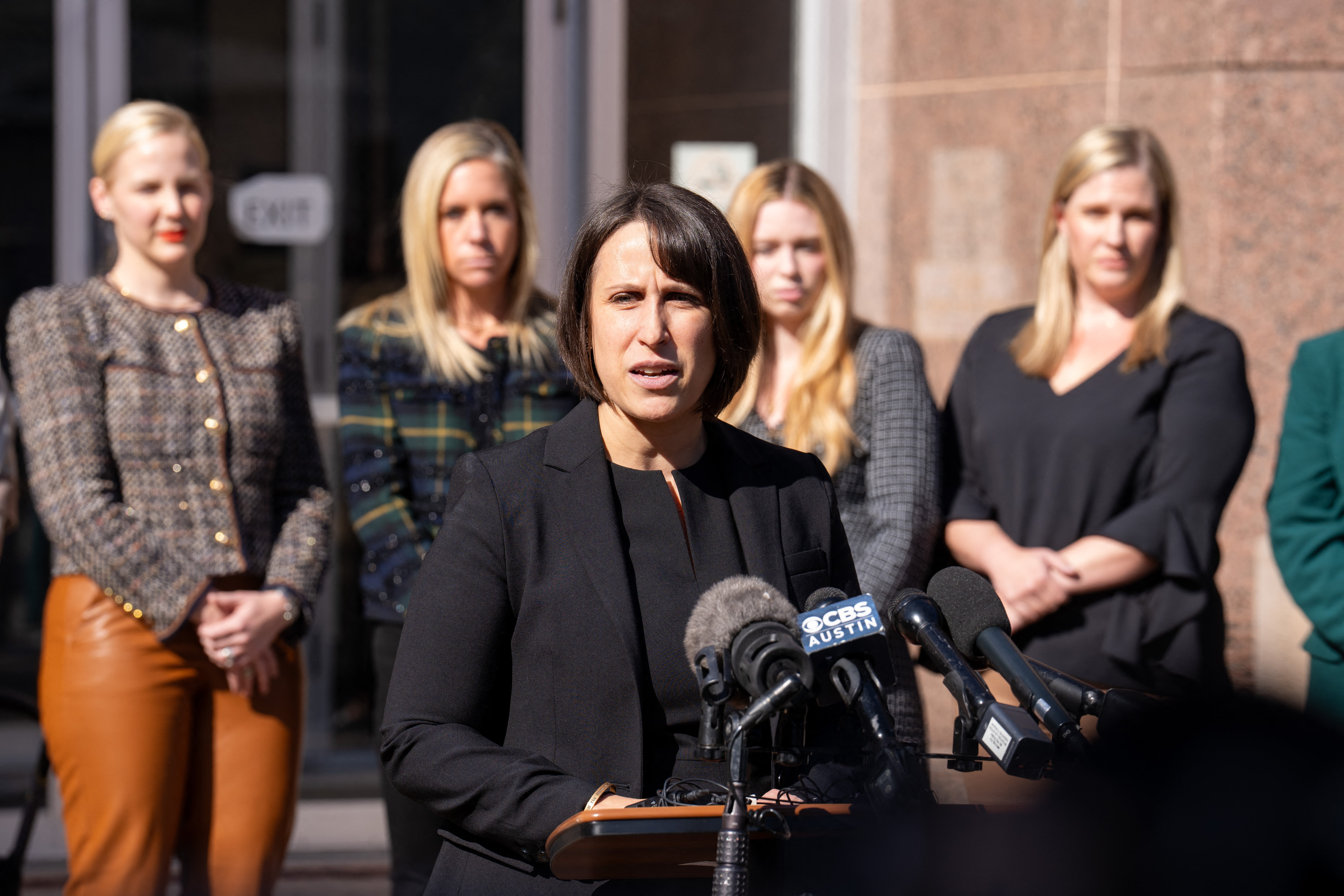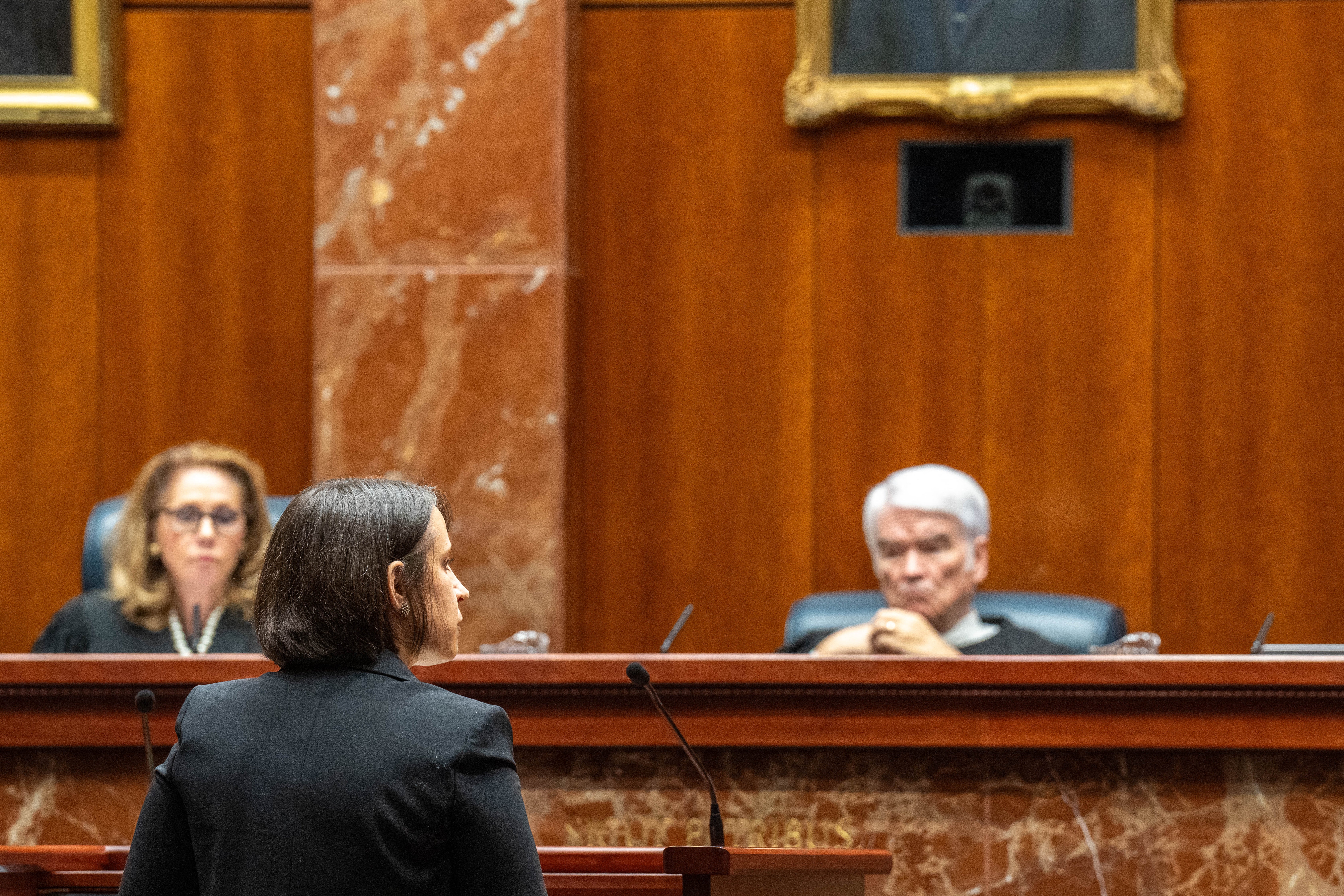Texas Supreme Court hears case from women denied emergency abortions
Women who experienced potentially lethal complications filed a landmark post-Roe lawsuit
What’s a “medical emergency” for pregnant women in Texas?
Does it include the rupture of a patient’s amniotic membrane at 18 weeks of pregnancy and the risk of life-threatening complications for the mother?
Or a fatal condition in which the skull of a fetus is not formed, leaving its brain tissue exposed to amniotic fluid? Is it a medical emergency if a woman is forced to carry a pregnancy to term, knowing that her baby will die moments after birth?
Several women who experienced those potentially lethal complications were denied urgently needed abortions, and then sued the state to clarify state law that would allow doctors to rely on their own medical judgment to provide that care – without the risk of jailtime.
On Tuesday, the Texas Supreme Court heard oral arguments in a case that seeks to clarify state law that the plaintiffs say has put their lives at risk.
The lawsuit appeared to be the first-ever case brought by women who were denied care under anti-abortion laws, as abortion rights advocates, providers, physicians and pregnant patients grapple with state-level bans after the US Supreme Court revoked a constitutional right to abortion care last summer.
Following an historic and harrowing two-day hearing in July, a judge temporarily blocked a Texas ban on abortions during medically complicated pregnancies. The state immediately appealed, effectively blocking the ruling from going into effect.
“The abortion bans as they exist today subjected physicians like my clients to the most extreme penalties imaginable: life in prison and loss of their medical license,” Molly Duane, senior staff attorney for the Center for Reproductive Rights, told the state Supreme Court in Austin on Tuesday.
“And while there is technically a medical exception to the bans, no one knows what it means, and the state won’t tell us,” she said.
Texas law makes only vague exceptions for abortion care in circumstances to protect the life of the patient, sparking widespread confusion among providers and hospitals fearing legal blowback or severe criminal penalties under the state’s anti-abortion laws, according to the plaintiffs.
Healthcare providers found in violation of those laws could lose their medical license, face tens of thousands of dollars in fines, or be sentenced to life in prison.
Eight justices on the nine-member state Supreme Court panel were appointed by Republican governors. Six were appointed by the state’s current Republican Governor Greg Abbott. One justice was elected unopposed in a 2012 election. All are Republicans.
But they appeared skeptical of some of the state’s arguments, including its position that the women don’t have legal “standing” to sue.
State prosecutor Beth Klusmann with the office of Texas Attorney General Ken Paxton argued that some of the plaintiffs “appear to have fallen within the exception, but their doctors still said no.”
“That’s not the fault of the law,” she said. The state “can’t force” those women to sue their doctors, she added.
Ms Klusmann denied that the state’s law puts those doctors in what Justice Debra Lehrmann called a “tough position.”
“I don’t think it does if they are allowed to use reasonable medical judgment, which is presumably a judgment they use when treating a patient in any given circumstance,” Ms Klusmann said.

The plaintiffs don’t blame their doctors. “Their hands are tied,” Ms Duane said.
“We’re not talking about a petty crime or misdemeanor,” said Ms Duane, responding to Justice Evan Young, who appeared to compare doctors providing emergency medical care to police officers who are forced to “internalise” constitutional law when making “split-second decisions”.
“I just don’t think the two situations are analogous at all,” she said. “The effects are so crystal clear we don’t have to guess it.”

Those harms are not hypothetical. Lead plaintiff Amanda Zurawski, whose amniotic membrane prematurely ruptured during the 18th week of pregnancy, spent three days in the ICU while experiencing sepsis after she was initially denied emergency abortion care. The infection permanently damaged one of her fallopian tubes.
Plaintiff Samantha Casiano was forced to carry a nonviable pregnancy to term and gave birth to a three-pound baby who died hours later.
Dr Austin Dennard, an obstetrician-gynecologist in the state, was forced to leave Texas for legal abortion care after an 11-week ultrasound discovered that the baby she was carrying had anencephaly, a fatal birth defect in which an infant’s skull is not fully formed. She later sent one of her own patients out of state for care under similar circumstances. They are now both plaintiffs in the case.
Those women were among plaintiffs in the case who described their isolation and heartbreak in courtroom testimony earlier this year as they detailed their traumatic pregnancies and what they characterised is the state’s failure to protect them.
Since the lawsuit was initially filed in March, the number of plaintiffs has grown from seven to 22.
“We would request that this court end the daily suffering of patients like my clients,” Ms Duane told justices on Tuesday, “and affirm that physicians can use their good faith judgment to provide abortion to their patients when it is medically necessary to save their lives.”
Join our commenting forum
Join thought-provoking conversations, follow other Independent readers and see their replies
Comments
Bookmark popover
Removed from bookmarks